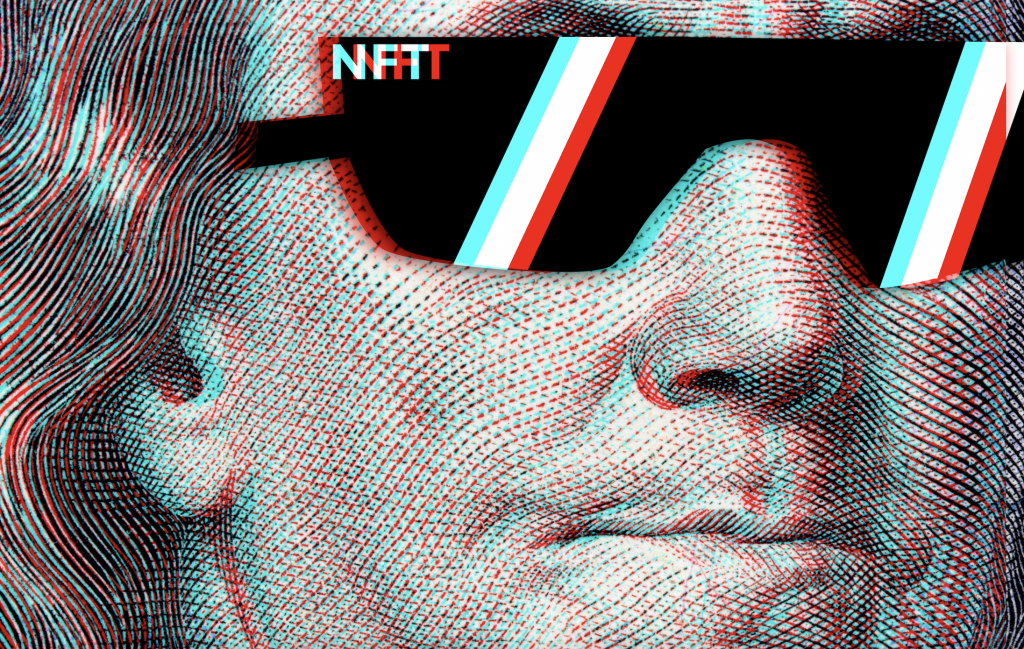An interesting non-fungible token (“NFT”) is set to land in the cryptowallets of unnamed individuals this week; the NFT is not associated with a piece of digital art (like a MetaBirkin) nor does it act as a “digital receipt” for a physical product, such as a Nike sneaker. Instead, this NFT will be tied to a complaint in which the wallet-holders are named as defendants. A recent order from a High Court of England and Wales judge enables a plaintiff to use digital tokens as “service” NFTs in order to alert the otherwise unidentifiable wallet-holder defendants of the litigation, in which they are being accused of “operating a fraudulent clone online brokerage encouraging would-be investors to deposit cryptocurrency into two wallets” – the wallets that will be served with the NFT-linked complaint – “so that ‘trades’ could be placed with it.”
According to court documents made public this week, Fabrizio D’Aloia has gotten approval from High Court Judge William Trower to use NFTs to serve the unidentifiable defendants with a summons and complaint in connection with the fraud case that he filed last month, accusing a number of “Persons Unknown” and five crypto exchanges of duping individuals into investing crypto into online brokerage accounts, only to have the funds disappear. In the wake of the court order, one that D’Aloia’s counsel is calling a “first” in the UK, the two wallets will be served by airdropping the complaints via “service” NFT.
Additionally, the court ordered that the crypto exchange defendants – Binance, Poloniex, gate.io, OKX, and Bitkub – ensure that the allegedly stolen funds are not moved from their exchanges.
Mr. D’Aloia’s counsel at Giambrone & Partners said on Tuesday that Judge Trower’s order is significant, as it “paves the way for other victims of crypto asset fraud to pursue persons unknown who have misappropriated their cryptocurrency in situations where they otherwise would not be able to – for instance, where the contact details for fraudulent platforms are no longer active, which is often the case.” It also poses the potential for digital service over the blockchain, they note, “with all the benefits of immutability and verification, to become the norm in favor of conventional means of service, such as [traditonal mail], where parties can blame lost, delayed, or redirected mail.”
The court order follows closely from a June 2 order from the Supreme Court of the State of New York, which gave cryptocurrency exchange LCX AG the go-ahead to serve the “John Does” defendants with court documents (including an Order to Show Cause) in the case that it has lodged following a hack that cost it the equivalent of $8 million.
Specifically, a New York Supreme Court judge held that LCX AG could serve the defendant with a service token that “contained a hyperlink to a website created by [the plaintiff’s attorneys at Holland & Knight], wherein the plaintiff’s attorneys shall publish [the] Order to Show Cause and all papers upon which it is based.” Beyond that, the court stated that the service hyperlink could “include a mechanism to track when a person clicks on the [link],” noting that “such service shall constitute good and sufficient service for the purposes of jurisdiction under New York law on the person or persons controlling the [wallet] address.”
“Fundamental to the due process of law, notice [refers to the] requirement that all parties are made aware that a lawsuit could alter their legal rights or duties,” Proskauer stated in a recent note, further asserting that while “most defendants will be served in person by a process server, when the defendant is unreachable this way, some creativity may be required, especially when the defendants are only traceable through their actions on the blockchain, an instrument famous in part for its ability to keep its users private.”
The need for creativity when it comes to service of process is becoming increasingly prevalent, as courts across the globe are seeing what Akin Gump’s Graham Lovett, Wael Jabsheh, and Michael Stewart call a “marked increase in civil cases relating to crypto theft, fraud and misrepresentation.” They say that a “major stumbling block” for plaintiffs in such cases is, of course, “how to serve anonymous defendants of unknown citizenship with court papers.” In order to circumvent this problem, “a plaintiff may consider converting digital scans of the Court papers into NFTs and airdropping the NFTs themselves,” as the plaintiffs have done in the aforementioned cases. This method “arguably” means that the court papers have been actually received at the address, and not merely linked.”
However, they note that “evidence that the wallet is in frequent use would also be helpful” on this front, as “similar applications for permission to serve via airdropped tokens [are expected to follow] in jurisdictions the world over.”
The case is Fabrizio D’Aloia v. (1) Persons Unknown (2) Binance Holdings Limited & Others.














